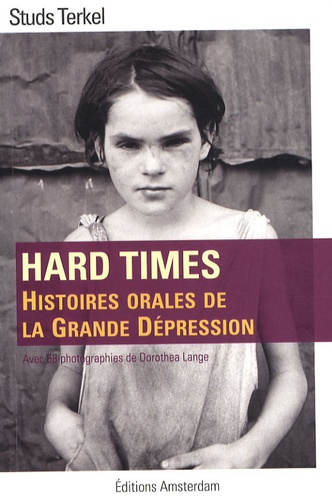

And this is a good thing-and not just because I find his writing style very florid and pompous. He introduces his subjects-most of the time-and occasionally prompts them with questions, but he’s otherwise invisible. When footnotes are necessary, Terkel often cross-references accounts or asks his subject to elaborate. Terkel, after his pompous introduction, fades into the background, letting his interviewees speak for themselves. And that’s why Hard Times is so important, not just as a record but by simply exploding that simplistic approach by proving it wrong over and over again.


It’s a simplistic approach, further simplified by the fact that it’s usually the end of the school year when they hit 1900 and time is of the essence. Roosevelt was elected and fixed everything with the New Deal, and, oh, thank God, we’re at World War II, that’s actually interesting. In American high school, American History classes teach the early half of the twentieth century thusly: the Roaring Twenties happen, the stock market crashes, causing the Great Depression, which was just awful for everyone, and then Franklin D. These personal stories are sorted into five books according to theme-working life, social life, politics, indifference, and the arts-and make for a broader picture of a decade narrowed in future thought. Written in 1970 (with a new introduction added in 1986), Studs Terkel interviewed hundreds of Americans who lived through the Great Depression in order to provide a record of a time that receded so quickly from memory that the children of its survivors, who Terkel also interviews, are almost utterly ignorant of it.

Hard Times is, as the subtitle tells us, “an oral history of the Great Depression”. (I am the reason some books don’t make it back onto the shelves. I’d never heard of Studs Terkel in my life and the Great Depression is not exactly a historical event that sweeps me off my feet, but the fact that it was a broad oral history intrigued me, and the bit I read interested me. It’s really a great way to discover books I’ve never heard of, with the added bonus of the fact that someone else found it worthwhile to check out-which is not much better than just stumbling across a book in a bookstore, I know, but it feels better.


 0 kommentar(er)
0 kommentar(er)
